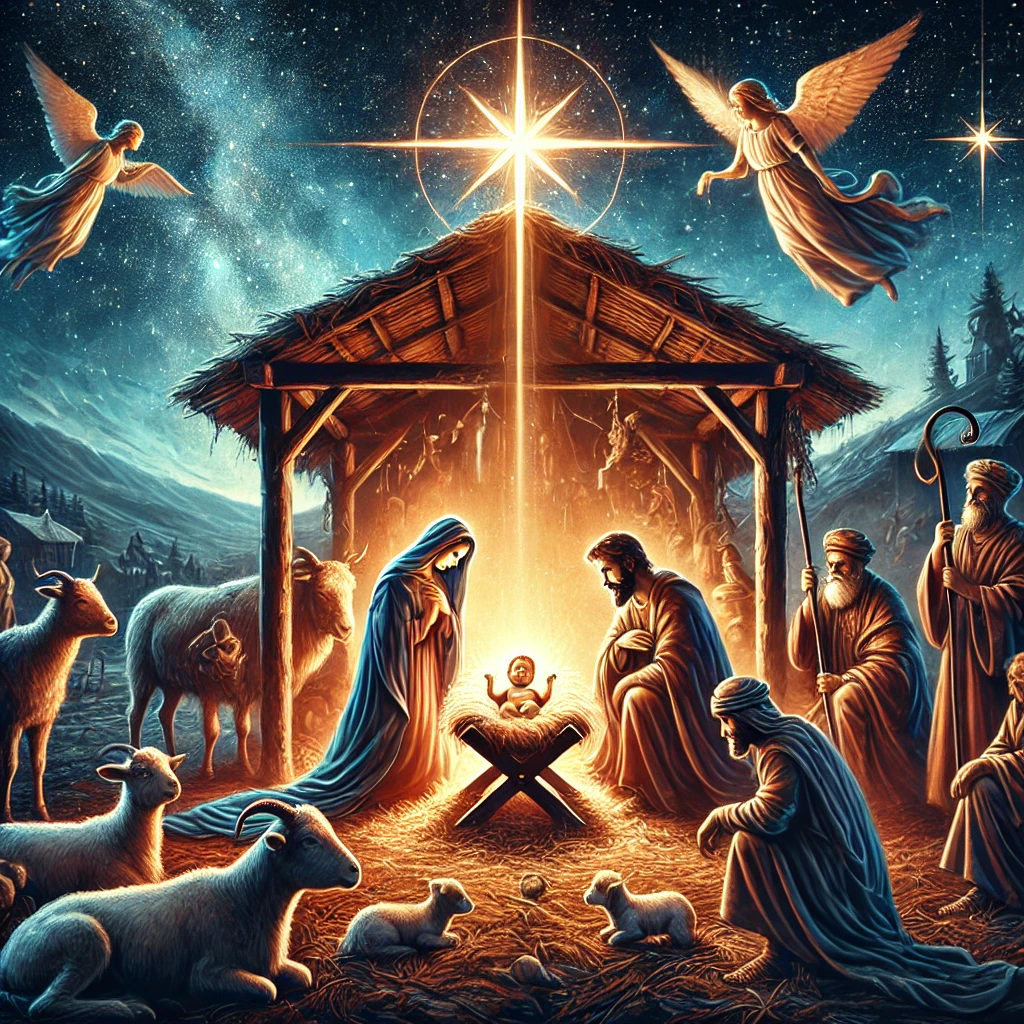
Christmas is one of the most widely celebrated holidays in the world, bringing together people of all backgrounds to commemorate the birth of Jesus Christ. But why exactly do Christians celebrate Christmas? Let’s explore the origins, biblical basis, and spiritual significance of this cherished holiday.
1. The Biblical Foundation for Christmas
Although the Bible does not specifically command the celebration of Christmas, the story of Jesus’ birth is central to the Christian faith. The accounts of Jesus’ birth are found in the Gospels of Matthew (Matthew 1:18–25) and Luke (Luke 2:1–20). These passages describe how Jesus, the Son of God, was born to the Virgin Mary in Bethlehem, fulfilling prophecies from the Old Testament.
- Prophecy Fulfilled:
The prophet Isaiah foretold the birth of the Messiah, saying:
“For to us a child is born, to us a son is given, and the government will be on his shoulders. And he will be called Wonderful Counselor, Mighty God, Everlasting Father, Prince of Peace” (Isaiah 9:6). - The Birth of the Savior:
The angel announced to the shepherds:
“Do not be afraid. I bring you good news that will cause great joy for all the people. Today in the town of David a Savior has been born to you; he is the Messiah, the Lord” (Luke 2:10–11).
The celebration of Christmas centers around the joy of Christ's birth and the hope He brings to the world.
2. Historical Origins of Christmas
The earliest recorded celebration of Christmas took place in 336 AD in Rome during the reign of Emperor Constantine. December 25 was chosen as the date, possibly to coincide with existing Roman festivals such as Saturnalia and the celebration of Sol Invictus (the "Unconquered Sun"). By placing the birth of Christ on this date, early Christians sought to redirect pagan celebrations toward honoring Jesus as the true "Light of the World" (John 8:12).
The tradition of celebrating Christmas spread throughout the Christian world and took on different cultural expressions over the centuries.
3. The Spiritual Significance of Christmas
For Christians, Christmas is more than a historical or cultural celebration—it is a time of profound spiritual reflection and gratitude.
- The Incarnation:
Christmas celebrates the miracle of the Incarnation—God becoming flesh in the person of Jesus Christ. As John 1:14 states:
“The Word became flesh and made his dwelling among us. We have seen his glory, the glory of the one and only Son, who came from the Father, full of grace and truth.” - The Gift of Salvation:
Jesus’ birth marks the beginning of God’s plan to redeem humanity from sin. His humble arrival in a manger symbolizes His mission to save all people, regardless of status or background. - A Season of Hope and Joy:
The message of Christmas is one of hope, peace, and joy. It reminds Christians of God’s love and His promise of eternal life through Jesus Christ.
4. Christmas Traditions and Their Meanings
Over time, various traditions have become associated with Christmas. Many of these customs have symbolic meanings tied to Christian faith:
- Nativity Scenes:
These displays of the manger scene help believers reflect on the humility of Christ’s birth. - Christmas Trees:
Evergreen trees, which remain green year-round, symbolize eternal life through Jesus. - Gifts:
The giving of gifts reflects the gifts brought to Jesus by the Magi (Matthew 2:11) and God’s ultimate gift of His Son to humanity (John 3:16). - Carols and Hymns:
Songs like “O Holy Night” and “Silent Night” celebrate the miracle of Jesus’ birth.
5. Why Christians Continue to Celebrate Christmas
Christians celebrate Christmas to honor and remember the birth of Jesus, who is central to their faith. It is a time to reflect on God’s love, share the good news of the gospel, and gather with loved ones in worship and fellowship.
Beyond the festivities, Christmas reminds believers of the hope that Christ brought into a broken world. It is an opportunity to embody the message of peace, generosity, and goodwill proclaimed by the angels on that first Christmas night:
“Glory to God in the highest heaven, and on earth peace to those on whom his favor rests” (Luke 2:14).
Christmas is a celebration of God’s love made manifest in the birth of Jesus Christ. For Christians, it is not just a holiday but a sacred time to reflect on the profound truths of their faith. As you gather around the tree, exchange gifts, or sing carols, remember the true reason for the season: the Savior’s birth and the hope He brings to the world.
Merry Christmas!
Spirituality Spiritual Lessons Spiritual Revival Spiritual Journey Spiritual Wisdom Bible History Spiritual Connection Spiritual Guidance Spiritual Growth Spiritual Significance Spiritual symbols in Scripture spiritual well-being Spiritual Map Christmas Christians Christmas and Jesus Biblical meaning Birth of Jesus Christ Christmas traditions Prophecy Prophecy of Jesus’ birth Christian holidays Christmas in the Bible History of Christmas





